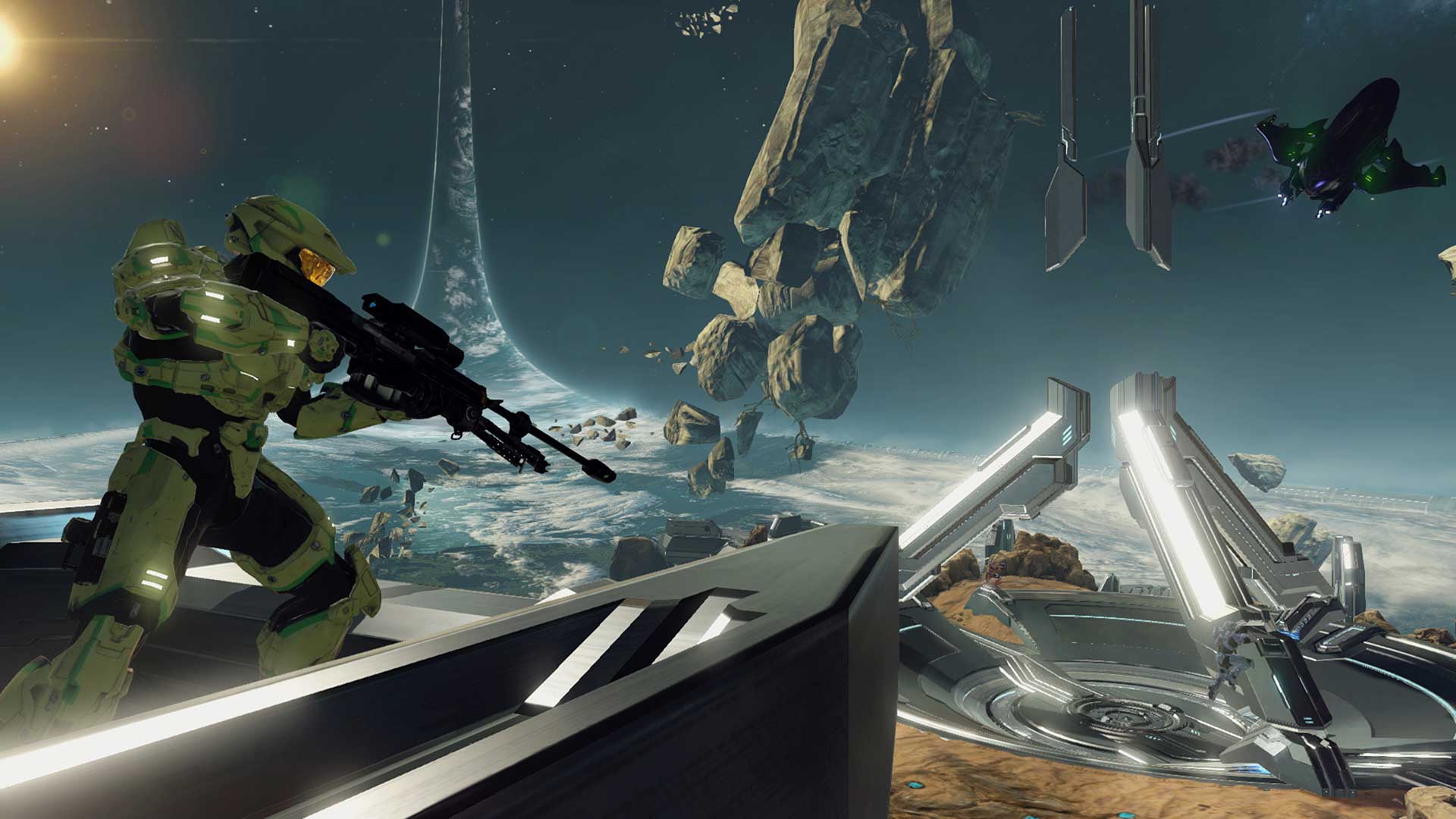The further away from planet Earth a sci-fi story takes place, the more sci-fi it feels for many. Though there are many great sci-fi tales taking place right here on our already pretty dystopian planet, it’s hard to beat the allure of the final frontier. But the best space exploration novels don’t just take readers on a journey to the remote planets on the edge of the galaxy. They also showcase fascinating philosophical dilemmas that make us examine humanity and its future in a different light. The vastness of space is full of the unknown, and the best sci-fi books with interstellar themes carefully examine what life would really be like amongst the stars.
Now, without further ado, let’s take a look at the best sci-fi books that take place away from Earth.
20. Foundation (Isaac Asimov)
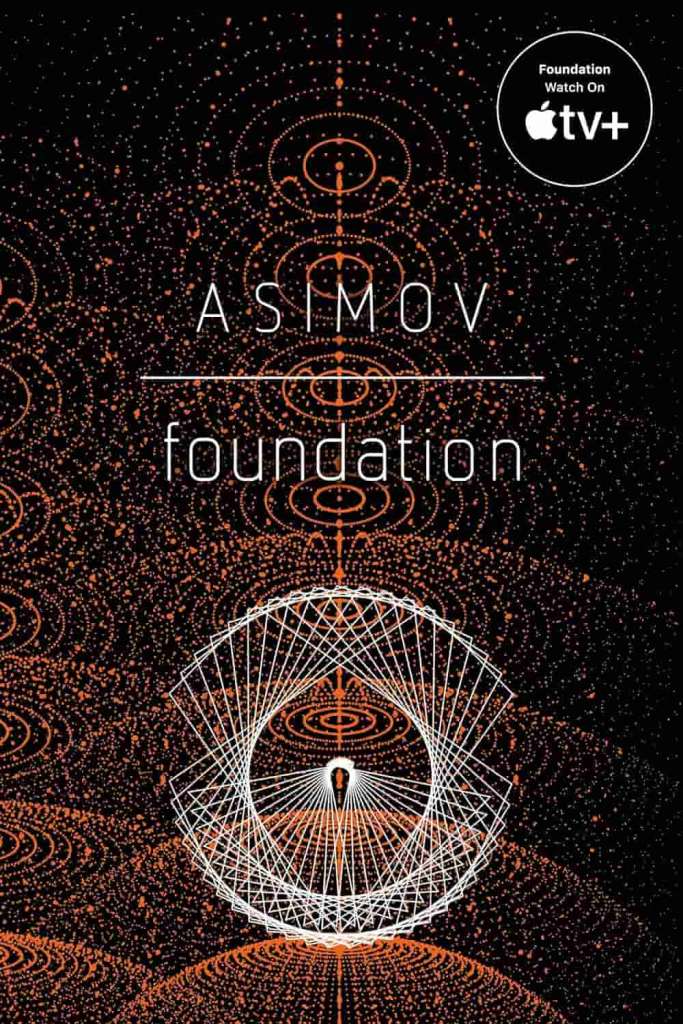
What if our scientific research was able to predict the future of humanity itself? This question forms the beginning of Isaac Asimov’s Foundation series, which starts with a collection of short stories published together under the same name. Hari Seldon works in a new field known as psychohistory, and when he angers the Galactic Empire with predictions of its demise, he’s exiled to a distant planet called Terminus. Terminus City becomes a new foundation for humanity after the end of the Galactic Era, but soon faces threats from its rivals. First published in 1951, Foundation showcases plenty of fascinating ideas about technology that are very much a product of their time. But even today, it’s still one of the best books set in space.
19. Project Hail Mary (Andy Weir)
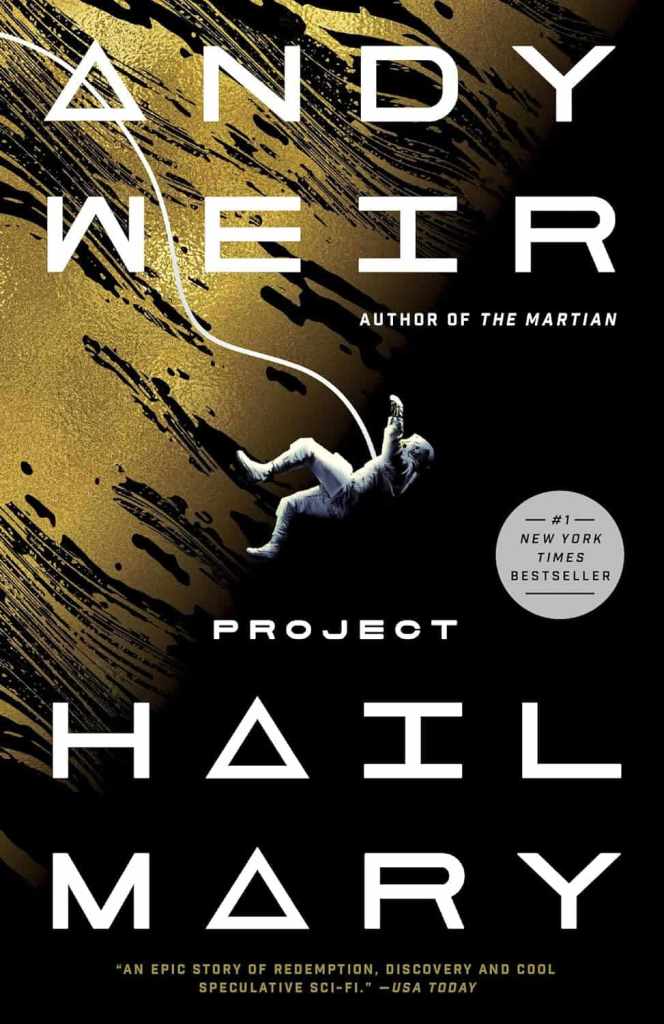
Project Hail Mary is a novel with two intertwined narratives. In one part of the book, the protagonist, Ryland Grace, awakens from a long space journey, twelve light years from Earth, with no memory of who he is or why he’s there. He’s the only crew member aboard who’s still alive when the ship arrives at its destination, which is a star system known as Tau Ceti. As Grace’s memory begins to return, the novel takes us back to Earth and follows the events leading up to the launch of Project Hail Mary, which turns out to be a last-ditch effort to save humanity. Both Project Hail Mary and Andy Weir’s more famous book, The Martian, do an excellent job of capturing the intense isolation that comes from being alone in the depths of space.
18. The Voyage of the Space Beagle (A. E. van Vogt)
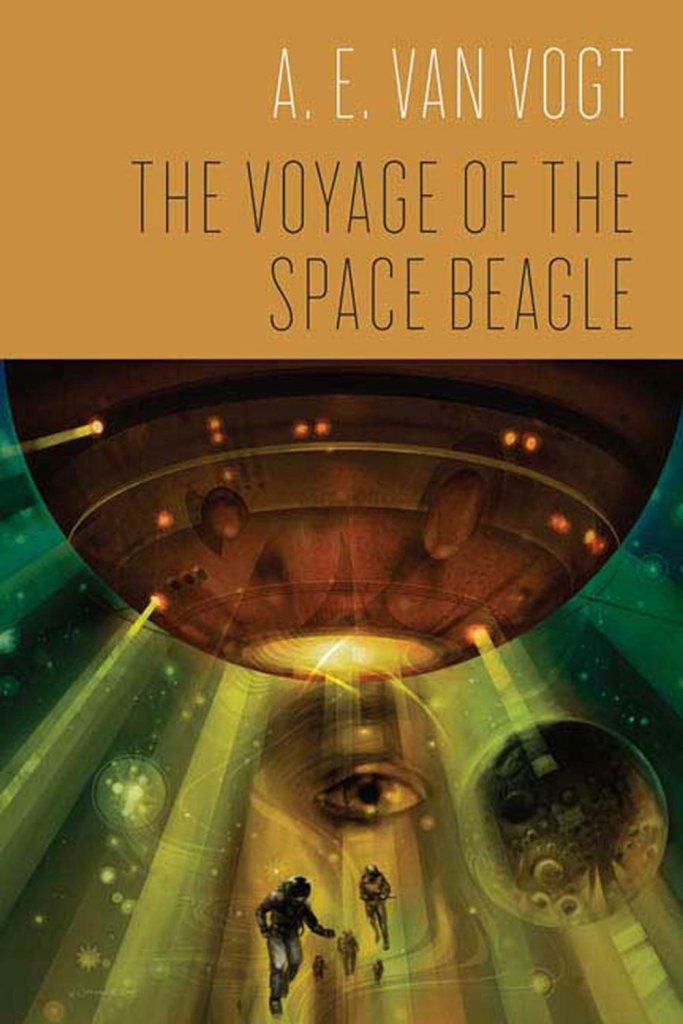
A. E. van Vogt’s The Voyage of the Space Beagle is a collection of four short stories that were originally published separately in science fiction magazines between 1939 and 1950 but were then combined to form a single narrative. The book is worth reading for its inclusion of the story Black Destroyer, which has been claimed to have inspired Ridley Scott’s 1979 film Alien. A mysterious starving creature known as a Coeurl comes aboard a ship full of humans and begins to pick them off one by one. The humans manage to capture the Coeurl, but it quickly escapes to wreak more havoc. In the book’s other three stories, the same crew encounters other kinds of mysterious alien beings and must work to prevent itself from becoming prey.
17. Across the Universe (Beth Revis)
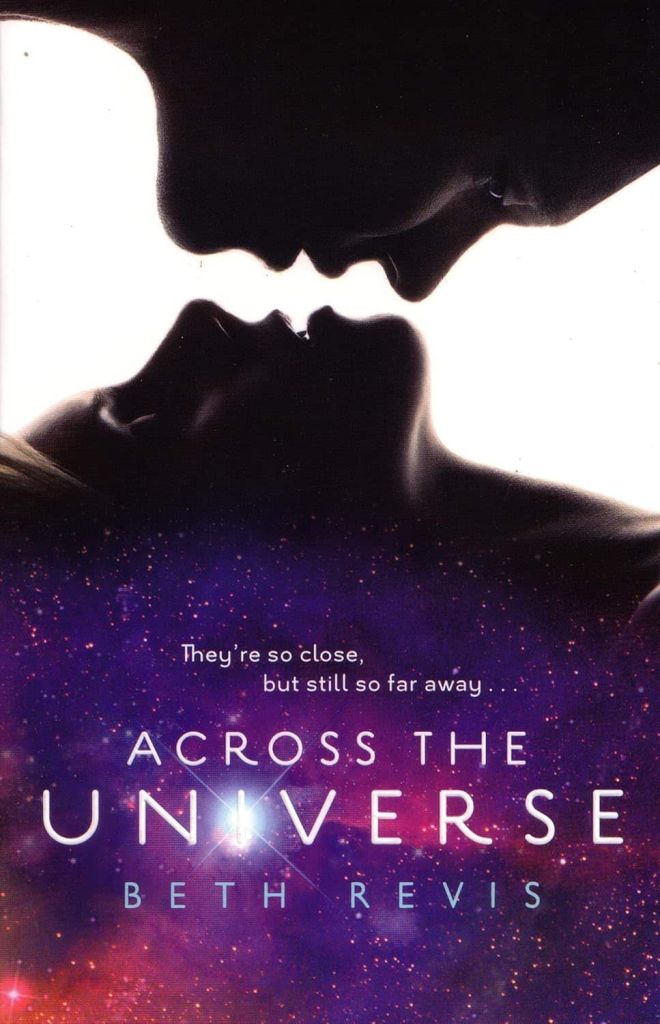
Beth Revis’s Across the Universe begins with a plot that will be familiar to anyone who’s seen the 2016 film Passengers. However, the mixture of mystery elements along with the romance in the book arguably ends up making it a completely distinct experience. The novel’s protagonist begins a 300-year journey to the distant planet Earth Centauri by settling down for a cryogenically frozen nap. When she awakens half a century too soon, she discovers that someone else aboard tried to kill her. This space exploration novel is a YA classic that could have easily been written into a solid movie.
16. All Systems Red (Martha Wells)
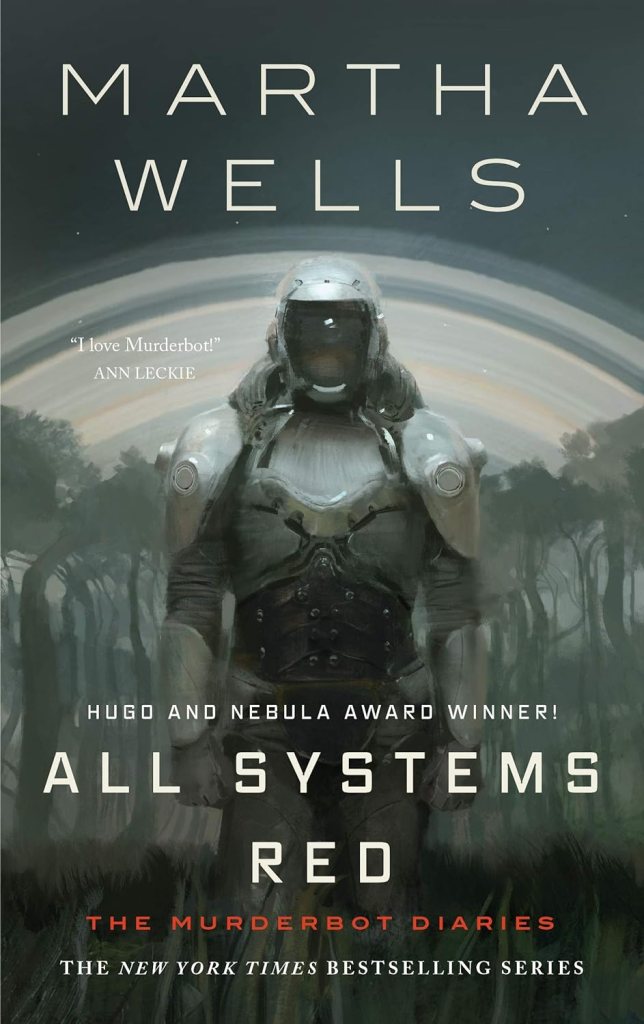
A team of human explorers journeys down to the surface of a mysterious planet for research purposes, accompanied by a robot assigned to them by the Company that has internally named itself Murderbot. But unlike other stories in which the machines rise up against the humans, All Systems Red draws from the perspective of the robot rather than the people. While the novel has a healthy dose of mystery and a touch of suspense, its charm often comes from its unexpected sense of humor. The book is the first of seven in the Murderbot Diaries series, which will soon hit small screens via Apple TV+.
15. The Dreaming Void (Peter F. Hamilton)
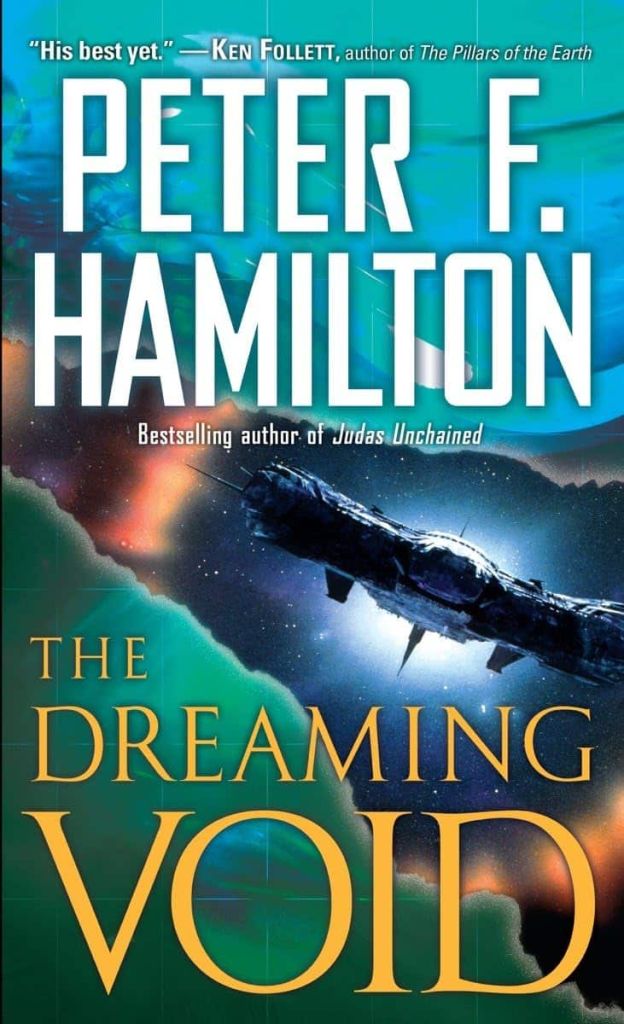
The mysterious Void at the center of the galaxy is an ancient, unknowable entity that’s capable of destroying planets and ending the human race. However, its real purpose is unknown, at least until people begin to dream of other humans living inside the Void. When the masses begin to worship the first dreamer, they set out on a journey into the Void with the potential to either save or destroy all civilizations. The shorter length of The Dreaming Void, relative to the size of Peter F. Hamilton’s other books, makes it a solid introduction to the expansive universe contained in the author’s works. If you’re looking for a lengthier and more in-depth starting point for Hamilton’s interconnected space opera book series, try picking up Pandora’s Star instead.
14. Children of Time (Adrian Tchaikovsky)
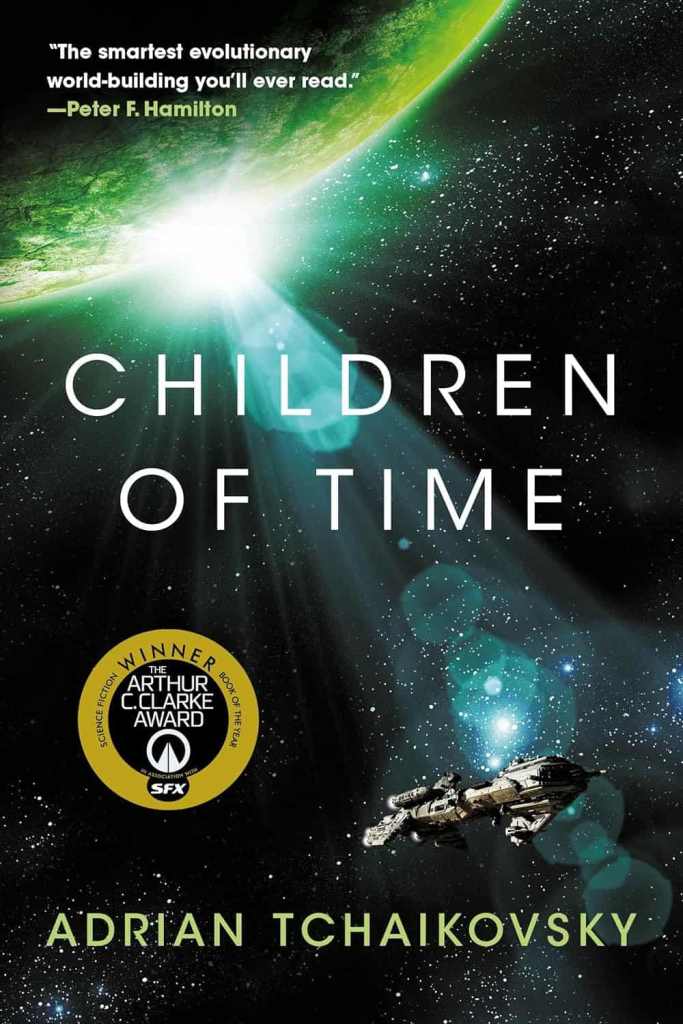
Adrian Tchaikovsky’s Children of Time tracks the development of a strange, genetically modified arachnid species that begins life on a planet far from Earth thanks to human intervention from Dr. Avrana Kern and a group of terrorists that interfere with her work. When the last remnants of humanity arrive on the planet thousands of years after the spider species’ genesis, conflict and confrontation ensue. The book studies the rapid decline of the humans aboard their lone spaceship while simultaneously examining the rise of the arachnids on their planet. It’s a strangely inventive narrative, and even when it’s compared with other sci-fi books with interstellar themes, it comes across as incredibly thought-provoking.
13. Tau Zero (Poul Anderson)
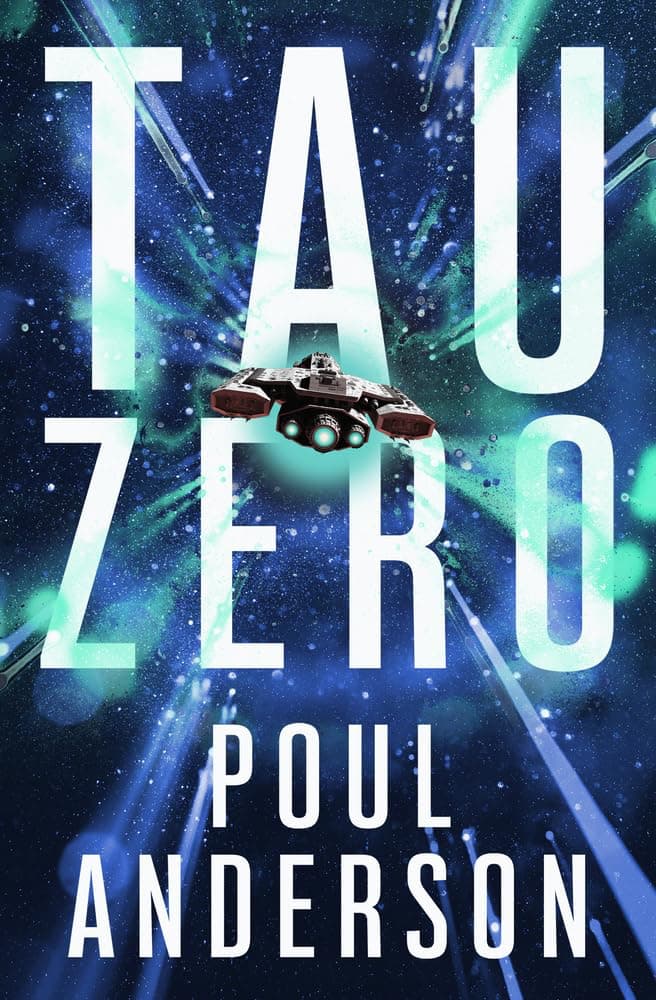
Poul Anderson’s Tau Zero is a fantastic classic sci-fi novel that’s great for anyone seeking an epic space adventure. The colonization ship Leonora Christine and its crew of fifty brave souls set out on a journey that’s supposed to take thirty-three years on Earth and five years aboard the ship. About halfway through their journey, however, the people aboard must take the vessel off its planned course in order to fix its engines, which must stay on to prevent the ship from exploding in a burst of flames. The book also includes clear explanations of the scientific concepts that fuel the narrative in separate paragraphs from the main parts of the novel.
12. Ender’s Game (Orson Scott Card)
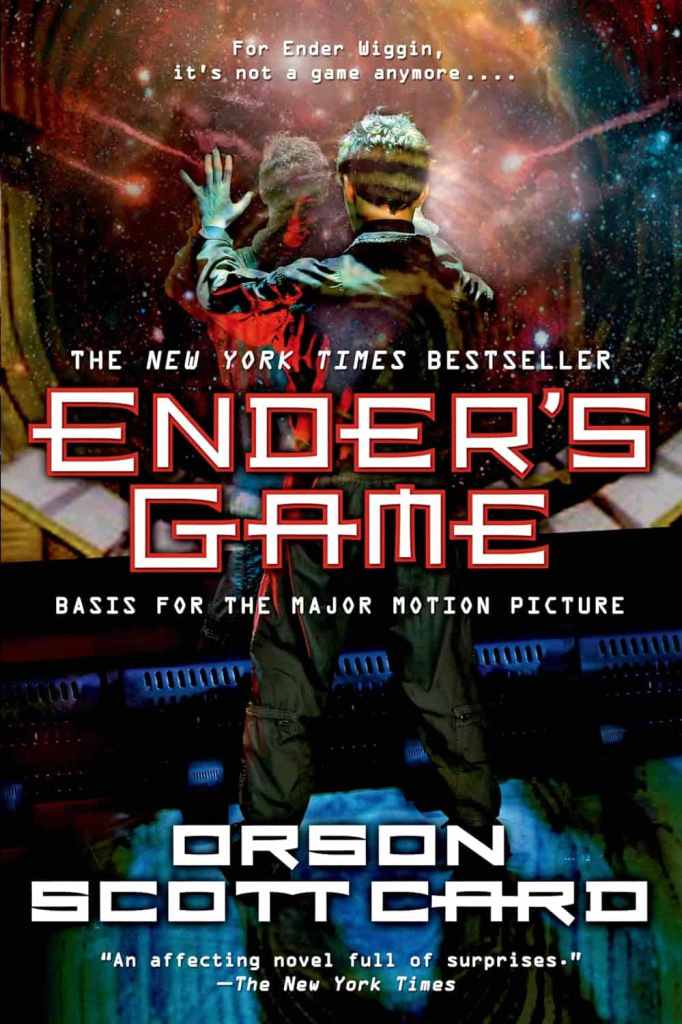
Ender Wiggin is a child prodigy who might be just what humanity needs to survive an impending alien attack. Ender’s Game begins when its titular character is just six years old and departs home for the Battle School, which operates from a space station that orbits Earth. As he continues to grow and learn tactical skills, Ender soon discovers that what seem like simple tests of his skills are anything but. The story draws into question what games and simulations can teach us, particularly when they involve violence. The book is arguably much more engaging than its film adaptation since it fully explores the role of Ender’s siblings and provides better details about what comes after the protagonist’s training.
11. Leviathan Wakes (James S. A. Corey)
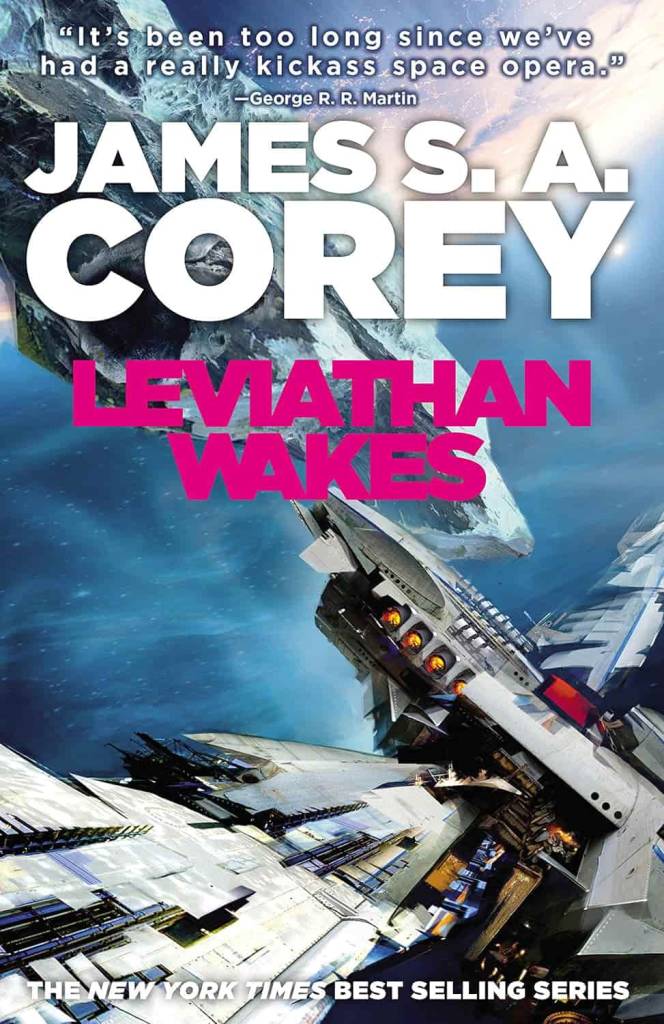
James S. A. Corey’s Leviathan Wakes is the first novel in the acclaimed Expanse series, which, after publication, became a popular SyFy channel television series. The story begins from the perspectives of two main characters, whose stories lead them to a secret aboard the Scopuli, a damaged ship that’s floating out in the Belt. The murder mystery that drives the plot forward is incredibly engaging, and the world that the novel captures is equally interesting. The differences in human development that occur on the planets far from Earth, which include both physical and linguistic changes, are particularly fascinating and well-drawn. Once you’re done flying through this book, you’ll have eight more lengthy novels and tons of extra short stories to work with to continue your journey through The Expanse.

10. Halo: The Fall of Reach (Eric Nylund)
If video game narratives tend to pale in comparison to those seen in literature, then the narratives seen in literary adaptations of video games tend to pale in comparison to both. Still, there are exceptions. The best one, as far as I know, is Halo: The Fall of Reach. It tells a compelling enough tale to entice people who were previously only into Halo because of all the gunplay, and it does it in Legendary difficulty mode because it’s a prequel.
Many fans of the games consider that The Fall of Reach is vastly superior to Halo: Reach, the critically acclaimed Halo game that ostensibly tells the same story.
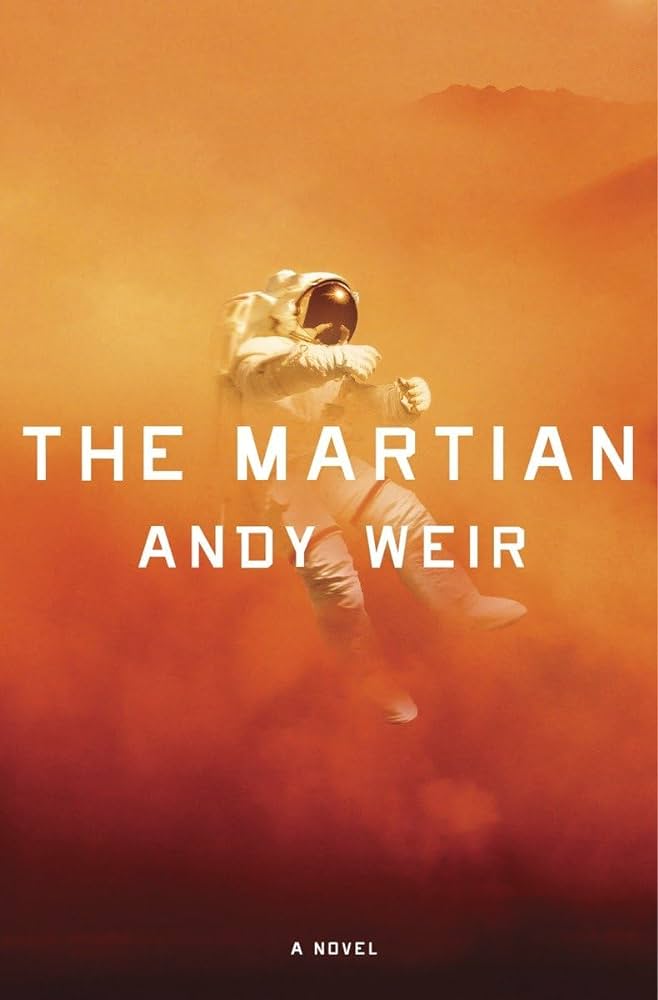
9. The Martian (Andy Weir)
In his first novel, Andy Weir proves that you can do great sci-fi by resorting to way more science than fiction. The Martian transplants the classic story of the sailor who falls off the ship and is accidentally left for dead to the space setting.
As expected, surviving Mars proves even harder than surviving a deserted island. It’s incredibly satisfying to see Mark Watney putting his knowledge into practice in an attempt to last as long as possible on the surface of such a callous planet.

8. The Martian Chronicles (Ray Bradbury)
Ray Bradbury’s The Martian Chronicles is one of the first known publications to seriously engage with the concept of colonizing Mars. As the title suggests, it’s more of a collection of tales about the challenges and adversities of conquering a new planet.
The Martian Chronicles remains a prescient piece of writing even three-thirds of a century later. Yes, please note that this was all written in the ’50s, long before we even got to space. So, if The Martian Chronicles remains good in our times, imagine how mind-blowing it would’ve been to read it back when it came out.
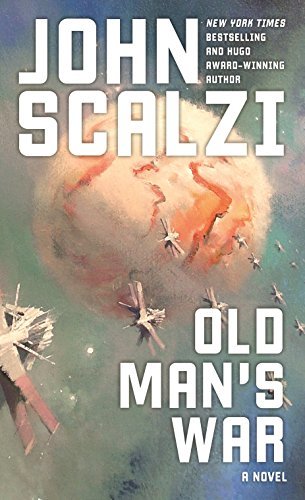
7. Old Man’s War (John Scalzi)
If you’re looking for a contemporary sci-fi author capable of going toe to toe with the masters of (relatively) old, then John Scalzi might be your guy.
One of the wildest aspects of war is that it tends to boil down to sending a bunch of youths to some foreign land because a bunch of old guys wanted them to go. Old Man’s War asks, “What if it was old people doing the fighting?” and “what if they were fighting for a purpose that directly benefitted them, like the right to an awesome retirement?” Scalzi had me at old people fighting, but then he added that said wars were in space and against a bunch of aliens, at which point I was almost ready to enlist for him.
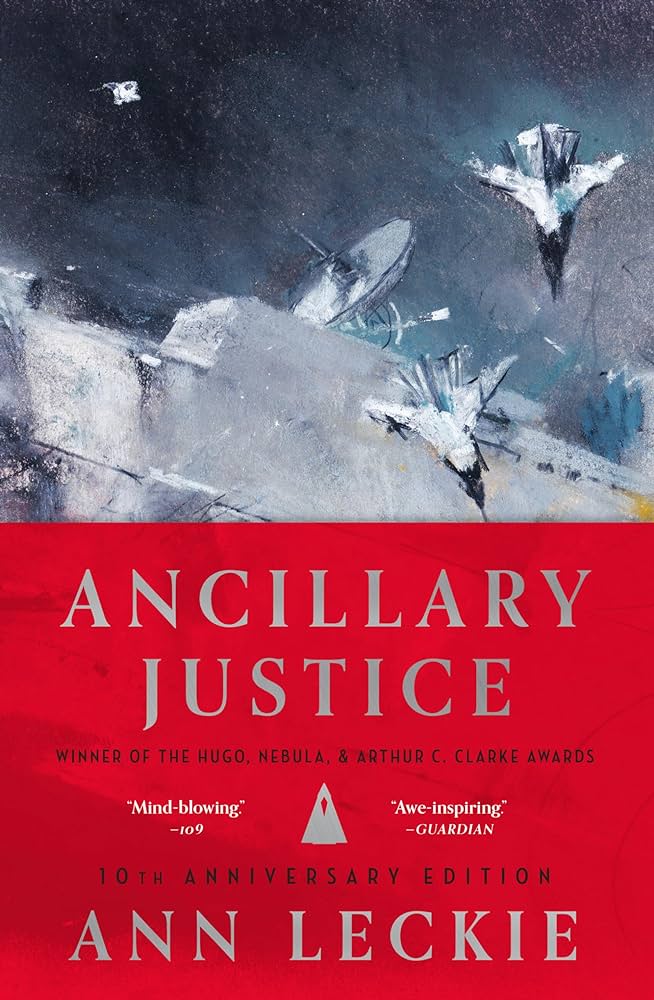
6. Ancillary Justice (Ann Leckie)
Ancillary Justice is a space opera like no other. Instead of telling you the tale of one hero who goes against an Empire, it tells the story of a great Imperial warlord whose brain used to control the hivemind of an entire army but who saw an act of treason reducing their reach to that of one single body.
Want an original revenge tale that will make you even more scared about Humankind’s desire for galaxy-wide domination than you already are? Then this is the one for you.

5. The Hitchhiker’s Guide To The Galaxy (Douglas Adams)
The Hitchhiker’s Guide To The Galaxy is the first of what author Douglas Adams describes as a trilogy of five books. That’s even more wrong than you think, as it’s actually comprised of six books.
If you’re into that kind of humor, then you should accompany Arthur Dent as he makes use of the titular Hitchhiker’s Guide, a sort of electronic McGuffin that helps him navigate the galaxy. He’ll need it, too, because planet Earth has just been destroyed to make way for a new space highway.
This is the quintessential space sci-fi comedy. It’s a bit of an acquired taste, but if it’s already your thing — or you happen to acquire that taste — you’re bound to have a lot of fun with it.
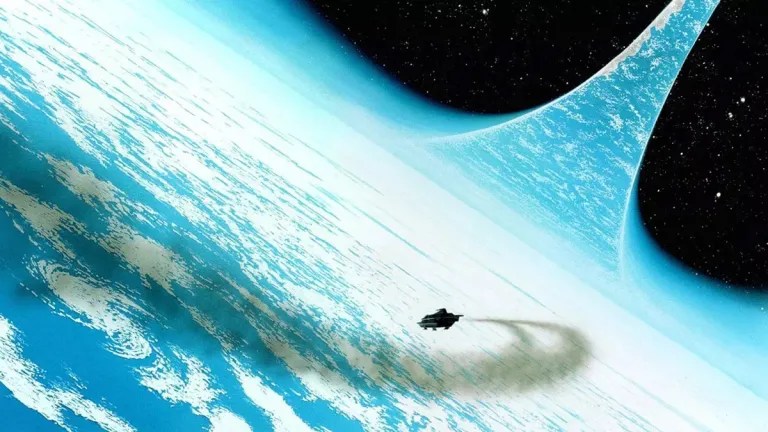
4. Consider Phlebas (Iain M. Banks)
Tired of overly serious and dour sci-fi tales where people only venture out to space because planet Earth can no longer sustain the human race due to human-caused troubles? Then Consider Phlebas — or pretty much any other book from Iain M. Banks’ The Culture series — a great pick.
Do you like Utopias? What about ring worlds, like Halo, but without the evil aliens and the awful human Military Industrial Complex? Consider Phlebas invites you to enjoy a post-scarcity, post-war galaxy. More or less away from any grand threat, there’s space to in a bunch of wacky and hilarious concepts rarely seen in other sci-fi works. Phlebas is a great palate cleanser for hard sci-fi and a fantastic reading on its own.
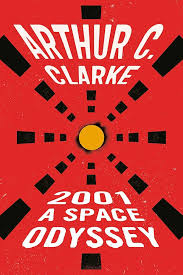
3. 2001: A Space Odyssey (Arthur C. Clarke)
Movie adaptations of popular novels tend to suffer criticism for not being able to feature every detail in the book — down to things that have no reason to be in the movie. The beauty of 2001: A Space Odyssey is that this pointless debate doesn’t need to occur.
Neither the book nor the movie are trying to outdo the other. Both works were made at the same time as they were meant to serve as companions to one another. Now, given that the 2001 film is seen as one of the greatest and most visionary sci-fi works ever due to — among other things — how it called us fools for blindly trusting AI, you do the math and wonder just how good its literary sibling might be.
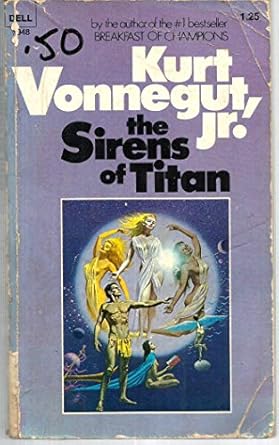
2. The Sirens Of Titan (Kurt Vonnegut)
Kurt Vonnegut explores the idea of absurdly wealthy men who owe everything to nepotism but attribute it to divine favor and puts it to the test by finally sending them to space in The Sirens Of Titan.
Will Malachi Constant see that things are not as he thought them to be and learn a valuable lesson? Will he become even more insufferable? This glorious sci-fi comedy is complex to the point that effectively spoiling it would be no easy task. Still, I recommend you go into the hilarious The Sirens Of Titan knowing as little as possible.

1. Solaris (Stanislaw Lem)
While most sci-fi loves to focus on stories about greatly detailed space wars, Stanislaw Lem was wondering what actual contact with an alien entity would look and feel like. Will the two vastly different entities be able to communicate right away? Will each even be aware of the presence of the other? Can they influence each other even with no real mutual understanding? Solaris asks these questions and many more, then only answers some of them while telling a deep story about love and about what it means to be human.
If you’re still on the fence, know that Solaris is the work that inspired Silent Hill 2, one of the greatest narratives in video game history.
